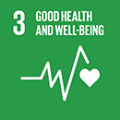As the Australian population ages, the number of people developing age related neurodegenerative diseases such as Alzheimer’s and Parkinson’s disease will increase. This project focusses on modelling emergent properties in the brain to combat neurodegenerative disease.
Combatting Neurodegenerative Disease
People suffering from neurodegenerative diseases have very limited treatments available. This is largely due to a poor understanding of the causes and mechanisms. Studying single cells doesn’t provide the information needed. To gain a better understanding, more advanced tissue models are required to obtain a greater understanding of neurodegenerative diseases, and to develop better treatments. This project aims to address this problem by developing a myelinated nerve tissue model with controlled neural structure on a patterned surface.
In the media
Funding secured for stem cell research to accelerate new treatments, Murdoch Children's Research Insititute, 30 June 2021
Furthering personalised medicine research to treat epilepsy, ARC Centre of Excellence, 20 July 2020
Neuroscientist awarded grant for dementia research, UOW Media, 3 August 2017
Presentations
Harris, Alexander R., Wedgwood, K., McGivern, P. (2021) A Framework for Assessing the Emergence of Novel Behaviours in Complex Systems, ACES Electromaterials Symposium, Wollongong, Australia. Starting at ~35min: https://www.youtube.com/watch?v=r6LNRYaNOTg&t=1992s
Researchers
Lezanne Ooi (SMAH), is from the Faculty of Science, Medicine and Health. She is a cellular neuroscientist using primary and human stem cells to investigate neurodegenerative disease. Dr Ooi’s expertise is critical for cell collection and growth.
Patrick McGivern (ASSH) is from the Faculty of the Arts, Social Sciences and Humanities. He has expertise in the philosophy of science, especially with regard to physical and biological models of emergent behaviour.
Alex Harris has a wide training and knowledge base with research specialisations including electrochemistry, electrophysiology, biomedical engineering, materials science, animal surgery, and ethics.
Johnson Chung (AIIM) is a material scientist that has expertise in 3D printing of biomaterials with primary/human stem cells. This skill will provide the project with the technical knowledge in order to successfully pattern cells/proteins on the substrate.
Jeremy Crook (AIIM) is recognised for human stem cell modelling of neurological disorders and engineering 3D functional human neural tissues and models of organogenesis. Jeremy will oversee the human brain organoid tissue modelling and guide cell printing.
Eva Tomaskovic-Crook (AIIM) has expertise in human stem cell biology and neurobiology, as well as biomaterials R&D for advanced neural tissue engineering and related disease modelling. Eva will provide technical expertise for brain organoid modelling, and advice for bioprinting studies.
Frederic Gilbert (University of Tasmania) conducts research in applied ethics, more precisely in neuroethics. He has a substantial body of work examining the ethics of research protocols involving issues inherent to pre-clinical and first-in-human clinical studies.
Kyle Wedgwood (University of Exeter, UK) is an applied mathematician with expertise in neural network modelling, particularly with regard to the emergence of coherent behaviour in such systems. He will develop and implement computational models of the advanced tissue structures.
Susanne Narkilahti (Tampere University, Finland) has expertise on human stem cell derived neural models and neurological deficits. Especially, the in vitro neuronal network level phenomena in health and disease is her major interest.
Pasi Kallio (Tampere University, Finland) has expertise on microfluidics, biosensing and fabrication of biomedical microdevices. In collaboration with Dr. Narkilahti, Prof. Kallio’s group has developed several compartmentalized microfluidic neuro-chips equipped with sensing capabilities to study neurodegenerative diseases.
Tara Hamilton (UTS) https://profiles.uts.edu.au/Tara.Hamilton
Anita Quigley (RMIT), Ben Rollo (Monash), Terry O'Brien (Monash), Patrick Kwan (Monash), Nicole Van Bergen (MCRI), John Christodoulou (MCRI)
 .
.